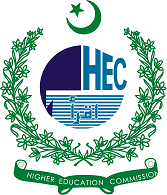The Role of Parental Mediation Regarding Tablet Usage Among Children
DOI:
https://doi.org/10.58932/MULA0013Abstract
The purpose of this research study was to find out the effect of tablets/mobiles on children’s life and the role of parental mediation. Tablets/mobile phones are used frequently to make children busy. Many parents, who have other urgent things to do other than looking after their kids, use this strategy to keep their children occupied. Parents use this technique to make their kids behave and sit quietly at home or even outside the house. This study examined that parents often have conflict with their children about tablet/mobile phones. In this study the theory of reactance has been used. Parents have used three mediation strategies; Active mediation, Restrictive mediation and co-use mediation. This study used survey method to get responses from the respondents. A sample of 400 parents of children aged 8-11 years was gathered through a questionnaire to investigate the relations. The results show that parents often have conflict with their children using tablets/mobile phones. There was a negative correlation between parent child conflict and social use mediation and parent child conflict and tart use and restrictive mediation. While, there was a positive correlation of tablet use with parent child conflict, active mediation, social co use mediation and other factors.
References
A.Christakis, D. (2014). Interactive Media Use at Younger Than the Age of 2 Years: Time to Rethink the American Academy of Pediatrics Guideline? JAMA Pediatrics, 168, 399-400. doi:doi:10.1001/jamapediatrics.2013.5081
Abelman, R. (2006). Fighting the war on indecency: Mediating TV, internet, and videogame usage among achieving and underachieving gifted children. Roeper Review, 29(2), 100-112.
Austin, & Weintraub, E. (2009). Exploring the effects of active parental mediation of television content. Journal of Broadcasting & Electronic Media, 37(2), 147-158. doi:https://doi.org/10.1080/08838159309364212
Bandura, A. (1999). Social Cognitive Theory: An Agentic Perspective. Asian Journal of Social Psychology, 2(1), 21-41.
Belsky, J., & Jaffee, S. R. (2015). The multiple determinants of parenting. Developmental Psychopathology: Volume Three: Risk, Disorder, and Adaptation, 38-85.
Boyden, J. (2015). Childhood and the policy makers: A comparative perspective on the globalization of childhood. In Constructing and reconstructing childhood (pp. 167-201). Routledge.
Breiner, H., Ford, M., Gadsden, V. L., & National Academies of Sciences, Engineering, and Medicine. (2016). Parenting knowledge, attitudes, and practices. In Parenting matters: Supporting parents of children ages 0-8. National Academies Press (US).
Bulck, V. d., Bergh, J. a., & Bea. (2005). The Child Effect in Media and Communication Research: A Call to Arms and an Agenda forResearch. Communication Yearbook, 29, 35-47.
Canary, H., & Canary, D. (2013). Family Conflict: Managing the Unexpected. John Wiley & Sons.
Collins, N. L., & Read, S. J. (1990). Adult attachment, working models, and relationship quality in dating couples. Journal of Personality and Social Psychology, 58(4), 644-663. doi:http://dx.doi.org/10.1037/0022-3514.58.4.644
Danovitch, J. H. (2019). Growing up with Google: How children's understanding and use of internet‐based devices relates to cognitive development. Human Behavior and Emerging Technologies, 1(2), 81-90.
Dubas, J., & Gerris, J. (2002). Longitudinal changes in the time parents spend in activities with their adolescent children as a function of child age, pubertal status, and gender. Journal of Family Psychology 16 (4), 415-427.
Livingstone, S., Haddon, L., Görzig, A., & Ólafsson, K. (2011). Risks and safety on the internet: the perspective of European children: full findings and policy implications from the EU Kids Online survey of 9-16 year olds and their parents in 25 countries.
Miron, A. M., & Brehm, J. W. (2006). Reactance theory-40 years later. Zeitschrift für Sozialpsychologie, 37(1), 9-18.
Ren, W., & Zhu, X. (2022). Parental mediation and adolescents’ internet use: the moderating role of parenting style. Journal of youth and adolescence, 51(8), 1483-1496.
Smetana, J. G. (2011). Adolescents’ social reasoning and relationships with parents: Conflicts and coordinations within and across domains. Adolescent vulnerabilities and opportunities: Constructivist and developmental perspectives, 38, 139-158.




